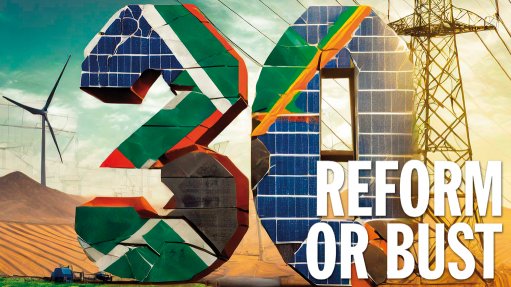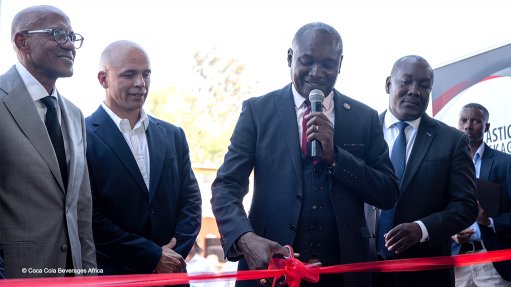Jobs, consumer protection and Africa on WTO agenda
The World Trade Organisation (WTO) announced on August 8 that its 2014 Public Forum on ‘Why trade matters to everyone’ would have 71 sessions. The three-day forum, which will run from October 1 to 3, will focus on the human story behind trade, giving participants an opportunity to discuss the impact of trade on jobs and consumers, as well as trade in Africa.
The sessions will be organised by a range of participants, including businesses, academia, media institutions, law firms, nongovernmental organisations and international organisations. The topics to be debated include how trade can help foster growth and jobs, how we can best balance free trade and consumer protection, and the extent to which Africa benefits from open trade. Of the 71 sessions, 23 will be dedicated to trade and Africa, the regional focus of this year’s forum.
In the opening debate on October 1, WTO director-general Roberto Azevêdo will be joined by heads of international agencies, Ministers and trade experts to discuss the social and economic opportunities created by trade.
In the second plenary debate, on October 2, entitled ‘What trade means for Africa’, high-level speakers will exchange views on how trade can play a role in development and poverty alleviation.
New features at this year’s public forum include the Trade and People fair, an exhibition area in the WTO atrium, which will showcase the connections between trade and people’s lives. Participants will discuss how various communities have improved their living standards through trade.
The forum will also feature lunchtime presentations from the Pew Research Centre on the results its 44-country survey entitled ‘World views on trade and investment’. Also to be included on the programme are ‘Meet the author’ sessions, to be presented by the WTO Bookshop, and a live broadcast by the BBC World Service of its flagship programme, The Forum.
In the run-up to the forum, the WTO has launched a worldwide survey to gather the public’s thoughts on international trade and how it affects the day-to-day lives of citizens worldwide. You can express your views at www.surveymonkey.com/s/82CBQCS.
The WTO has invited interested people to participate in its trade selfie initiative. To participate, one needs to take a picture of yourself and to tell the WTO how trade impacts your daily life. According to the WTO, the best photos will be displayed at the public forum and will be posted on the WTO website and its social media channels (Facebook, Twitter and YouTube). The WTO also invited those interested to send a selfie to selfie4trade@wto.org.
Public forum participants will have the opportunity to give a two-minute response to a topical question asked by the WTO’s Public Forum TV. Responses will be streamed on the WTO’s social media sites and a selection will be posted on the WTO website.
Regular updates on the public forum will be published on the WTO website and on its social media sites. A wide selection of photos from the forum will be made available on the WTO website and on Flickr.
WCO Performance Measurement Contracts Guide
The World Customs Organisation (WCO) has published a new guide entitled The Why & How of Performance Measurement Contracts (PMCs). The guide describes an innovative approach to targeted improvements in customs border controls using data extracted from customs clearance systems, measurement and performance contracts between customs directors-general and frontline customs officers.
As evidenced by its successful implementation in several countries, performance measurement contracting is beneficial in identifying and reducing deficiencies in customs procedures to directly benefit customs objectives, such as revenue collection and trade facilitation.
The PMCs pioneer is the Customs Administration of Cameroon, which launched exhaustive customs reforms in 2007. The reforms began with the installation of a sophisticated automated customs clearance system that enabled the administration not only to track the processing of each consignment but also to measure a number of criteria relevant to the reforms. Customs officers subsequently signed individual performance contracts intended to measure their actions. In a short time of the PMC’s implementation, the administration had achieved improved results in terms of revenue generated by duties and taxes and by disputed claims, faster clearance times and reduced corruption. PMCs are also being used in Togo and Liberia.
The new guide’s overall purpose is to explain the rationale behind performance measurement, elucidate the context in which it is particularly useful, show the advantages of being able to ‘speak the same language’ and thus recognise the same border realities.
Customs Control Bill
On August 4, the South African Revenue Service (Sars) published what it called “the second batch” of draft rules proposed under Chapter 11 to Chapter 20 and Chapter 24 of the Customs Control Act, 2014 (Act No 31 of 2014). The chapter descriptions are Chapter 11, transshipment procedure; Chapter 12, temporary admission procedure; Chapter 13, warehousing procedure; Chapter 14, tax-free shop procedure; Chapter 15, stores procedure; Chapter 16, export procedure; Chapter 17, temporary export procedure; Chapter 18, inward processing procedure; Chapter 19, home-use processing procedure; Chapter 20, outward processing procedure; and Chapter 24, expedited clearance and release of goods. Comments should be submitted on a ‘comment sheet’ template by no later than September 26.
Plastic Bag Tariff
On August 14, Sars extended the period to comment on the draft notices proposing amendments in relation to plastic bags in Part 1 (Ordinary customs duty) and Part 3A (Environmental Levy) of Schedule No 1 of the Customs and Excise Act. Comment is now due by September 12.
According to Sars, these drafts propose to amend the scope of plastic carrier bags and plastic flat bags subject to environmental levy by including those bags made from any thermoplastics material and to remove the current printing requirements.
SEZ Advisory Board Nominations
The Minister of Trade and Industry has extended an invitation to nominate people to serve on the Special Economic Zones (SEZ) Advisory Board. The establishment of the board is in accordance with Section 7 of the SEZ Act, assented to the President on the May 19.
Applications and nominations should be submitted to the Minister by September 12.
Comments
Press Office
Announcements
What's On
Subscribe to improve your user experience...
Option 1 (equivalent of R125 a month):
Receive a weekly copy of Creamer Media's Engineering News & Mining Weekly magazine
(print copy for those in South Africa and e-magazine for those outside of South Africa)
Receive daily email newsletters
Access to full search results
Access archive of magazine back copies
Access to Projects in Progress
Access to ONE Research Report of your choice in PDF format
Option 2 (equivalent of R375 a month):
All benefits from Option 1
PLUS
Access to Creamer Media's Research Channel Africa for ALL Research Reports, in PDF format, on various industrial and mining sectors
including Electricity; Water; Energy Transition; Hydrogen; Roads, Rail and Ports; Coal; Gold; Platinum; Battery Metals; etc.
Already a subscriber?
Forgotten your password?
Receive weekly copy of Creamer Media's Engineering News & Mining Weekly magazine (print copy for those in South Africa and e-magazine for those outside of South Africa)
➕
Recieve daily email newsletters
➕
Access to full search results
➕
Access archive of magazine back copies
➕
Access to Projects in Progress
➕
Access to ONE Research Report of your choice in PDF format
RESEARCH CHANNEL AFRICA
R4500 (equivalent of R375 a month)
SUBSCRIBEAll benefits from Option 1
➕
Access to Creamer Media's Research Channel Africa for ALL Research Reports on various industrial and mining sectors, in PDF format, including on:
Electricity
➕
Water
➕
Energy Transition
➕
Hydrogen
➕
Roads, Rail and Ports
➕
Coal
➕
Gold
➕
Platinum
➕
Battery Metals
➕
etc.
Receive all benefits from Option 1 or Option 2 delivered to numerous people at your company
➕
Multiple User names and Passwords for simultaneous log-ins
➕
Intranet integration access to all in your organisation


















